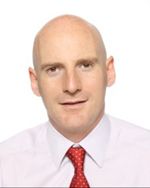Dr. Curley’s Research
Targeting the MSC-macrophage interaction; optimizing cell therapy for ARDS
Human Mesenchymal Stem/Stromal Cells (hMSC’s) offer hope for patients with Acute Respiratory Distress Syndrome (ARDS), but much remains to be learned prior to clinical translation. Traditional understanding holds that MSCs are predominantly immunosuppressive; in particular MSCs are understood to induce an “anti-inflammatory” type of macrophage (M2). Dr. Curley’s studies of the effects of MSCs in ventilator induced lung injury and bacterial pneumonia, and investigations by other groups, including co-investigator Dr. Keating, suggest that (i) MSCs can alter their phenotype, depending on activation of Toll-like receptors on MSCs, to become pro-inflammatory, and (ii) MSCs may recruit macrophage to the injured lung.
This project will demonstrate that MSCs can polarize to a pro-inflammatory MSC1 type (which can recruit pro-inflammatory monocytes to the infected lung), or an immunosuppressive MSC2 phenotype (which can induce a change in macrophages to an anti-inflammatory, pro-repair phenotype), in response to different TLR-agonists.
Dr. Curley will use in vitro co-culture studies to assess the ability of naive and activated MSCs to alter macrophage phenotype, migration, bacterial killing mechanisms and phagocytosis. His team will use in vivo studies in mice and rats, utilizing intra-vital microscopy, to assess the ability, mechanisms and therapeutic importance of monocyte recruitment by naïve and activated MSCs in infection induced ARDS, and to define dosing strategies of the most effective MSC activation strategy, that will inform a Phase I clinical trial.
Anesthesiologists remain to the fore in the care of patients with ARDS, both in the perioperative period, and in cardiovascular and medical/surgical intensive care units. Altering MSC phenotype prior to administration may further augment host defense, and result in an advanced “MSC therapeutic” with greater efficacy in sepsis induced ARDS, with enormous implications for these critically ill patients and for the practice of anesthesiology worldwide.
With the proposed studies Dr. Curley’s team will gain a better understanding of the debilitating consequences of TBI and they will be able to develop an informed pharmacological strategy to prevent post-traumatic memory deficits. The results could rapidly lead to changes in clinical practice through the restricted use of drugs that enhance the activity of these “memory blocking” receptors or treatment with drugs that block their activity. Moreover, these receptors can be detected using nuclear tags and MRI imaging and could serve as the first method to quantify memory loss associated with general anesthetics and brain trauma.
Related publications
Curley GF, Scott JA, Laffey JG.
Mesenchymal stem/stromal cells (MSCs) have become the focus of intense research effort over the past 10 years, in an effort to harness their regenerative and immune-modulating capacity for a variety of clinical conditions. In acute respiratory distress syndrome (ARDS)…
Mesenchymal Stromal cell therapies – potential and pitfalls for ARDS.
Masterson C, Jerkic M, Curley GF, Laffey JG.
Mesenchymal Stem/Stromal Cells (MSCs) offer considerable promise as a novel therapeutic strategy for Acute Respiratory Distress Syndrome (ARDS). MSCs may be able to ‘reprogramme’ the immune response to reduce destructive inflammatory elements while preserving the host response to pathogens. In addition, MSCs…
Read Dr. Curley’s recent publications and articles.
International Anesthesia Research Society

